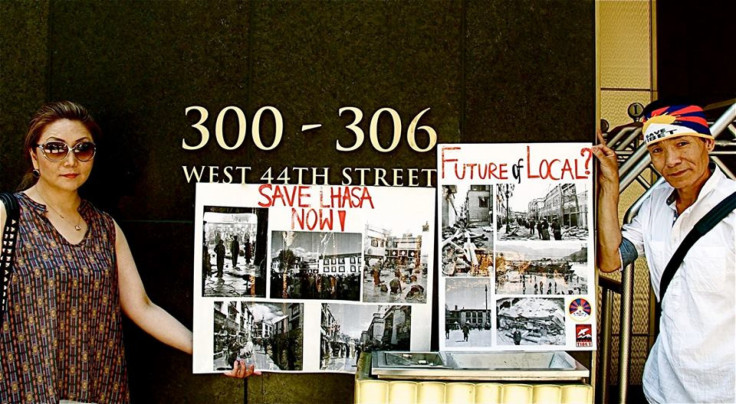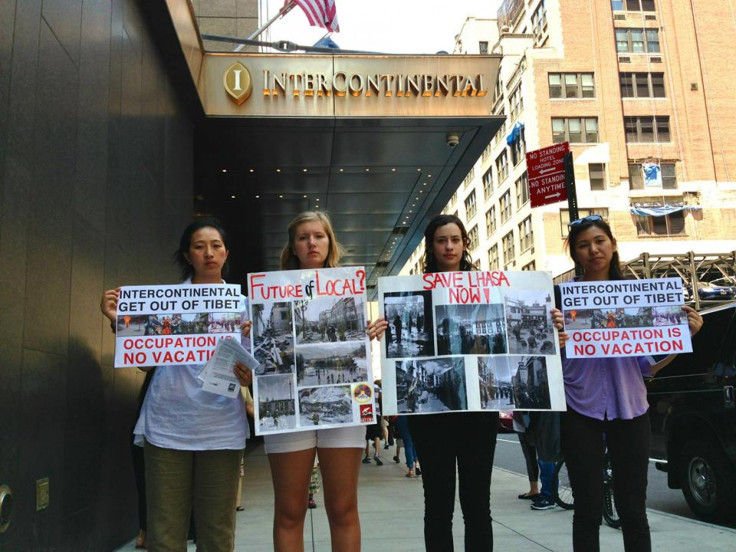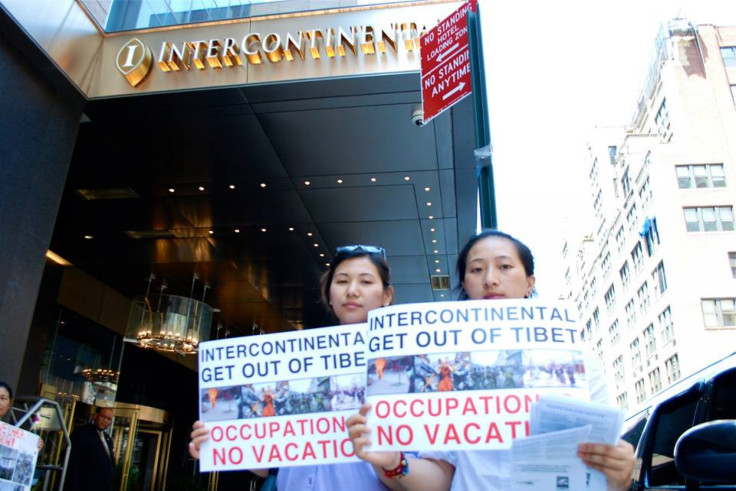Pro-Tibetan Activists Protest InterContinental Hotels' Plans To Build Luxury Resort In Lhasa
In late May, a group of activists associated with Free Tibet, a nonprofit organization that campaigns for an end to the "Chinese occupation of Tibet,” announced they would be boycotting all hotels operated by InterContinental Hotels Group (NYSE: IHG) to protest the company's development of a new sprawling resort in Lhasa. Recently, pro-Tibetan campaigners brought their protests directly to IHG in both New York and London.

InterContinental Hotels held an event at its New York City location in Times Square called “Future of Local.” The conference was part of a series of discussions addressing the effects of globalization and the impact that multinational companies, like their own, have on local cultures and the communities in which they develop.
New York protesters part of Students for a Free Tibet viewed this event as an opportunity voice their concerns over the Lhasa hotel, which has been slated to open in 2014 after some delays.

“As a Tibetan, I am here to tell Larry Light, chief brands officer of InterContinental Hotel Group, that Lhasa under Chinese occupation is the opposite of paradise,” Pema Yoko, Students for a Free Tibet’s campaign director, said in a press statement. “Occupation is no vacation, and InterContinental’s attempt to brand Lhasa as a luxury tourist destination is a gross insult to the Tibetan people.”
An IHG spokesperson responded to the boycotters saying that human rights issues will not be ignored by the multinational company. “We take our commitments to human rights and creating local economic opportunity very seriously. All IHG employees have signed on to our code of ethics and business conduct and our human rights policy,” a spokesperson said to the initial boycott anouncement.
While tourists have increasingly flocked to the Tibetan region, activists fear that the hotel development will only benefit the business interests of the ethnic Han Chinese in the area and further degrade local Tibetan culture. “The presence of an upscale multinational brand such as InterContinental gives priceless PR to the Chinese regime responsible for gross human rights abuses throughout Tibet,” Eleanor Byrne-Rosengren, director of Free Tibet, said in an earlier statement.

Last week, activists showed up at InterContinental’s Annual General Meeting in London to participate in a similar protest over the impending opening of the new luxury hotel in Lhasa. A "die-in," a form of protest in which activists lie down and simulate being dead, was staged in front of the InterContinental Park Lane accompanied by banners, Free Tibet announced.

Byrne-Rosengren and Padma Dolma, the executive director of Students for a Free Tibet UK, attended the shareholders meeting and were able to question the hotel giant’s board members of their plans in Tibet.
Free Tibet and Students for a Free Tibet insist that they will be unrelenting in their efforts to convince the hotel group to pull out of Tibet. “London and New York are only the beginning: Tibetans and people of conscience around the world will continue to escalate pressure on Intercontinental until it cancels its plan for the Lhasa hotel,” Yoko said.
© Copyright IBTimes 2024. All rights reserved.












